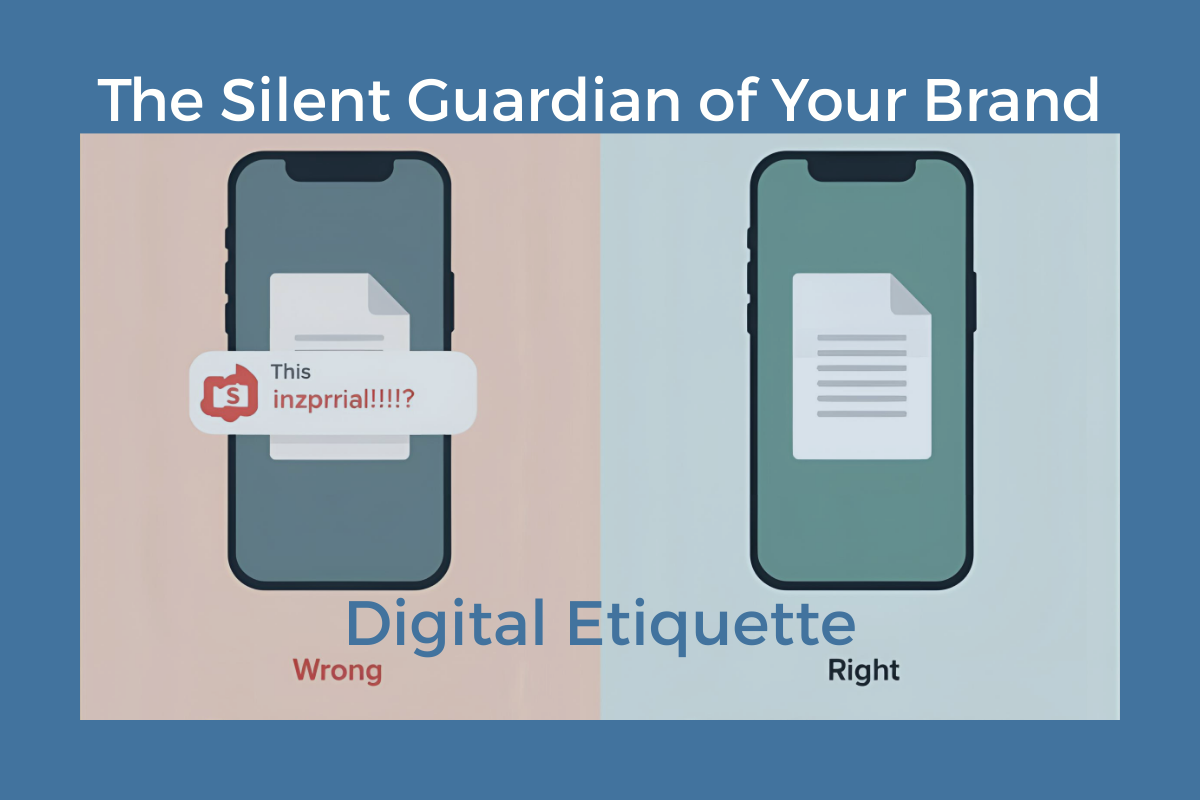A brand today is defined by far more than just campaigns, websites, or carefully crafted posts. It’s also shaped by the small but frequent interactions that happen every day: a WhatsApp message sent after hours, an unlabelled attachment, or an impulsive comment on LinkedIn. These may feel minor in the moment, but they contribute to how your clients, colleagues, and industry peers perceive you.
For businesses in the Middle East, where relationships are often built on personal trust as much as professional delivery, these details matter. Digital etiquette is no longer just about courtesy — it is a vital part of brand protection.
Why Boundaries Matter
The ability to reach someone instantly is both a strength and a weakness. When you send messages at odd hours or flood a chat with voice notes, you risk intruding into someone’s personal space or causing frustration. Likewise, sharing a file with an unhelpful name or without context creates confusion and reflects carelessness. These small slips can chip away at credibility over time.
Simple boundaries go a long way in preserving professionalism:
- Keep messages within agreed working hours unless it is urgent.
- Use text as the default for clarity, and reserve voice notes for when tone or nuance is essential.
- Label attachments clearly so recipients can find and share them easily.
By showing respect for time and clarity, you reinforce the values of reliability and consideration that underpin a strong brand reputation.
Why Etiquette Shapes Perceptions
Research reinforces just how critical these small choices can be. A 2024 study in the International Journal of Strategic Communication found that even minor breaches of digital etiquette — such as after-hours messages or overly casual online comments — significantly reduced perceptions of credibility and professionalism. Conversely, organisations that implemented simple communication protocols were consistently rated as more trustworthy and reliable.
For businesses in the GCC, where reputation is closely tied to respect and credibility, this insight is a powerful reminder: etiquette is not optional; it’s a reputational safeguard.
Commenting with Care
The same principle applies to comments on social media. LinkedIn in particular is a powerful tool for executives, but it can quickly become a reputational minefield. A quick remark on a competitor’s post or a casual comment on a political story may seem harmless in the moment, but once online, words are easy to screenshot and share beyond context.
That doesn’t mean executives should be silent. On the contrary, thoughtful commentary can position a leader as an industry expert and build trust with followers. The key is to be deliberate rather than reactive. Ask yourself whether your comment adds insight, aligns with your professional role, and reflects the brand you represent. If the answer is no, it may be better to stay quiet.
Some practical safeguards include:
- Pause before posting; if in doubt, wait before responding.
- Stick to topics where you can genuinely add value, such as market insights or professional expertise.
- Avoid engaging in heated debates, particularly around politics, unverified news, or sensitive issues.
Creating a Culture of Discipline
Ultimately, good digital etiquette is not about stifling personality. It’s about creating a culture of discipline across the organisation so that every interaction reinforces, rather than risks, the brand. A quick recap of a WhatsApp group decision, a professional tone in social comments, or even resisting the urge to weigh in on a divisive topic all contribute to building consistency and trust.
For SMEs, where growth often depends on reputation and word of mouth, these everyday choices can make a bigger impact than a marketing campaign. They show clients and partners that your business values respect, professionalism, and reliability.
Final Thought
Digital etiquette is the silent guardian of your brand. By setting clear boundaries and encouraging mindful communication, you can protect your reputation in ways that polished campaigns alone never could. In a digital-first world, where every message and comment has the potential to travel far, the small details matter most.



